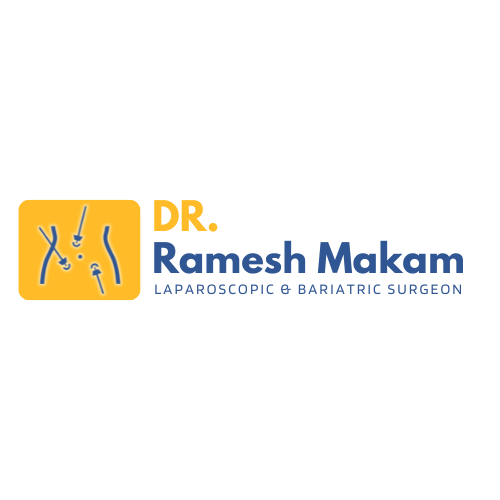- +91 9019 704 252
- drramesh@hotmail.com
- J. P. Nagar, Bengaluru

Endocrine Surgeries

Endocrine Surgeries in Bangalore by Dr. Ramesh Makam
Expert Care for Endocrine Disorders with Minimally Invasive Techniques
Introduction: Why Choose Dr. Ramesh Makam for Endocrine Surgery?
When it comes to endocrine surgery, you need an expert who can provide the best care for your condition. Dr. Ramesh Makam, a pioneer in minimally invasive surgery, is a leading surgeon for endocrine surgeries in Bangalore. With over 35 years of experience, Dr. Makam offers safe and effective treatments for conditions affecting the thyroid, parathyroid, adrenal glands, and more. He uses advanced minimally invasive techniques to ensure faster recovery, less pain, and minimal scarring.
Endocrine surgeries can treat conditions that affect the body’s hormone-regulating glands. Whether you have a thyroid issue or an adrenal tumor, Dr. Makam provides world-class care right here in Bangalore.
Book an Appointment | Contact Us
Why Choose Dr. Ramesh Makam for Endocrine Surgery in Bangalore?
Here are the top reasons why patients trust Dr. Ramesh Makam for endocrine surgeries:
Pioneer in Minimally Invasive Endocrine Surgeries
Dr. Makam was among the first in Karnataka to introduce minimally invasive endocrine surgeries, making complex surgeries simpler and less painful for patients.
Highly Awarded Surgeon
Dr. Makam has received the Dr. B.C. Roy Memorial Award, the Rotary Club’s Professional Excellence Award, and the Samaja Seva Bhushan Award for his contributions to healthcare.
Center of Excellence in Minimally Invasive Surgery
Arka Anugraha Hospital, where Dr. Makam operates, is a Center of Excellence in minimally invasive surgery, equipped with the latest technology to provide top-quality care.
Extensive Experience
With over 12,000 successful surgeries, Dr. Makam has extensive experience in performing complex endocrine surgeries with precision.
Patient-Centered Approach
Dr. Makam takes time to understand each patient’s condition, carefully explaining your treatment options and guiding you through your surgery and recovery process.

Endocrine Surgeries Performed by Dr. Ramesh Makam in Bangalore
Dr. Ramesh Makam specializes in a variety of endocrine surgeries, using minimally invasive techniques to ensure quicker recovery and minimal scarring. Here’s a look at the procedures he offers:
This surgery removes part or all of the thyroid gland to treat conditions like thyroid cancer, goiters, or hyperthyroidism. Using a minimally invasive approach, Dr. Makam ensures minimal scarring and a quicker recovery.
This surgery removes one or more of the parathyroid glands, which control calcium levels in the blood. Conditions like hyperparathyroidism, which cause too much calcium in the blood, often require surgery.
This procedure removes one or both adrenal glands to treat tumors or hormone imbalances. Dr. Makam’s minimally invasive approach leads to faster recovery and fewer complications.
For tumors that affect the hormone-producing areas of the pancreas, such as insulinomas or gastrinomas, laparoscopic surgery is often the best option. This approach reduces the impact on surrounding tissues.
This surgery is done for conditions like hyperparathyroidism, where overactive parathyroid glands cause problems with calcium levels. Using minimally invasive techniques, Dr. Makam can remove the problematic glands while leaving healthy tissue intact.
Not sure which surgery you need? Contact Dr. Makam to discuss your symptoms and find the best treatment in Bangalore.
Benefits of Minimally Invasive Endocrine Surgery
Minimally invasive surgery is a game-changer for endocrine surgeries, providing several benefits:

Faster Recovery
Smaller incisions mean you’ll heal faster and get back to your routine more quickly.

Less Pain
Minimally invasive surgeries cause less pain, reducing your need for pain medication during recovery.

Minimal Scarring
With small incisions, the surgery results in minimal scarring, making it ideal for procedures like thyroidectomy.

Lower Risk of Infection
Small incisions and less exposure of internal tissues reduce the risk of infection.

Shorter Hospital Stays
Many minimally invasive endocrine surgeries are performed on an outpatient basis, meaning you can go home the same day or after a short stay.

Greater Precision
Laparoscopic techniques allow for more precise surgery, leading to better results and fewer complications.
Why Is Endocrine Surgery Needed?
Endocrine surgery is used to treat a range of disorders affecting the endocrine glands, such as:
- Thyroid Cancer or Goiter:If you have thyroid cancer or an enlarged thyroid (goiter) that’s affecting your health, surgery may be needed to remove all or part of the thyroid gland.
- Hyperthyroidism:If medications aren’t controlling your hyperthyroidism, surgery can help by removing part of the thyroid to reduce its activity.
- Hyperparathyroidism:If your parathyroid glands are overactive, they can cause serious health problems, including high calcium levels. Surgery to remove the overactive glands can restore balance.
- Adrenal Tumors:Tumors in the adrenal glands can cause hormone imbalances that affect your health. Adrenalectomy can remove these tumors and restore normal function.
- Pancreatic Endocrine Tumors:Tumors in the hormone-producing areas of the pancreas can lead to a variety of health issues. Surgery is often required to remove these tumors and prevent further complications.
- If you have an endocrine disorder that requires surgery, Dr. Makam is here to help. Early diagnosis and treatment can prevent complications and improve your quality of life.
Patient Education: Preparing for Endocrine Surgery in Bangalore
Before Surgery
Consultation: Dr. Makam will discuss your symptoms, medical history, and test results. You’ll receive detailed instructions to help you prepare for surgery, including any necessary diet or medication changes.
Pre-Surgery Testing: You may need blood tests or imaging scans (like ultrasound or CT scans) to help plan the surgery.
During Surgery
Minimally Invasive Procedure: Surgery is performed under general anesthesia. Dr. Makam uses small incisions and laparoscopic instruments for precise, minimally invasive treatment.
After Surgery
Post-Surgery Care: Recovery is usually quick, and most patients can go home the same day or after a short hospital stay. Dr. Makam will provide personalized care instructions for a smooth recovery.
Follow-Up Appointments: You’ll have follow-up appointments to ensure proper healing and to discuss any post-surgery concerns.
FAQs
Frequently Asked Questions (FAQs) About Endocrine Surgeries
Endocrine surgery is typically recommended if you have been diagnosed with a condition affecting your thyroid, parathyroid, adrenal glands, or pancreas. Conditions like thyroid nodules, goiters, hyperparathyroidism, adrenal tumors, or hormone imbalances often require surgery when medications or other treatments are not effective. Dr. Ramesh Makam will evaluate your condition and suggest surgery only if it's the best treatment option for you.
Recovery after minimally invasive endocrine surgery is generally quicker than traditional surgery. Most patients can return to their normal activities within 1-2 weeks, depending on the procedure. Since small incisions are used, there is less postoperative pain and a faster healing process. You may need to avoid heavy lifting or strenuous activities for a few weeks after surgery, but your doctor will give you personalized recovery guidelines.
Like any surgery, endocrine surgery carries some risks, but minimally invasive techniques greatly reduce these risks. Common risks include infection, bleeding, or damage to nearby structures such as nerves or blood vessels. However, Dr. Makam’s experience and use of advanced techniques help minimize complications. Before surgery, Dr. Makam will discuss any specific risks related to your condition.
For most minimally invasive endocrine surgeries, patients can go home the same day or after a short hospital stay of 1-2 days, depending on the complexity of the procedure. Thyroidectomy, parathyroidectomy, and adrenalectomy are often done as outpatient procedures. However, for more extensive surgeries or if complications arise, a longer hospital stay may be required.
Minimally invasive surgery involves tiny incisions, which means you will have very small and often barely visible scars after healing. These incisions are typically less than 1 cm and are placed in areas where they are not easily noticeable, ensuring better cosmetic outcomes. Over time, these scars tend to fade significantly.
Before your surgery, you will have a consultation with Dr. Makam, where you’ll discuss your medical history, current medications, and any necessary pre-surgery tests such as blood tests or imaging scans. You may be asked to adjust or stop certain medications (such as blood thinners) before surgery. Dr. Makam’s team will provide you with detailed instructions on how to prepare, including any dietary restrictions the day before surgery.
After your surgery, Dr. Makam will schedule follow-up appointments to monitor your recovery and ensure everything is healing properly. You will be provided with specific aftercare instructions, including how to manage pain, when to resume activities, and signs to watch for that might indicate complications (such as swelling or fever). You may also need blood tests or scans in the follow-up period to ensure the surgery was successful and your endocrine function is normal.
Appointment